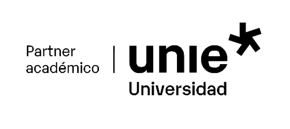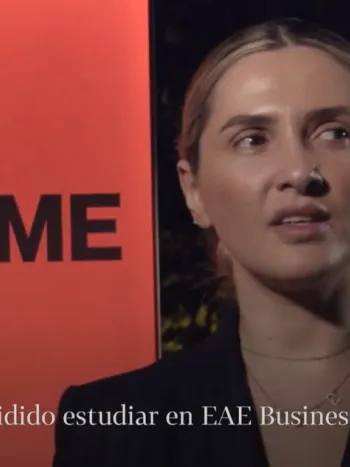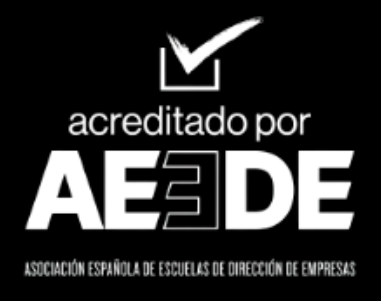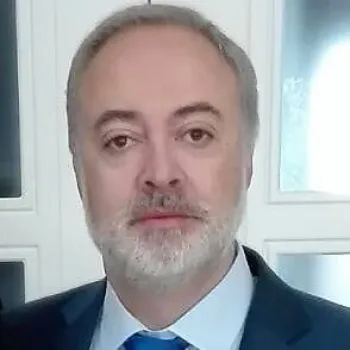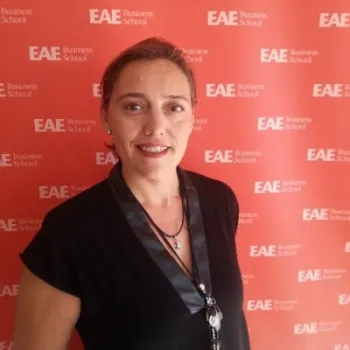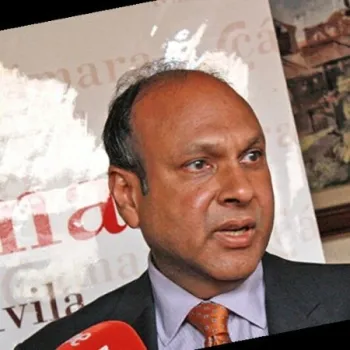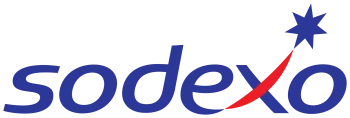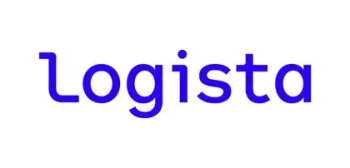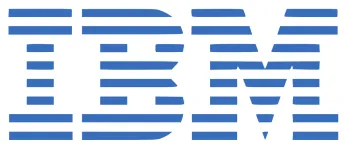
Master in International Business
- Oct. 2026 - 10 months
- 60 ECTS
- Young Professional
- Full Time - English
Presentation of the Master in International Business
This master's degree is taught in ENGLISH
The Master in International Business focuses on the development of critical competencies for business management in the 21st century. Through an innovative pedagogical methodology it combines technical aspects with soft skills modules integrated throughout the entire syllabus. The focus on skills such as collaborative leadership, creativity, effective communication and ethical decision making guarantees that graduates become exceptional leaders in any business environment. The program also offers hands-on, collaborative experiences that transcend the classroom where students deal with real business challenges in collaboration with relevant companies that have established strong partnerships with the School.
In today's business environment, characterized by global interconnectedness and rapid change,
the Master in International Business recognizes this need and therefore comprehensively integrates analysis of the domestic, regional, and international environment. In addition, students will gain a panoramic vision of the trends and challenges that affect companies at a global level, enabling them to make informed decisions that contribute to the development and implementation of strategies.
This program focuses on the future, examining how both mainstream and emerging technologies (artificial intelligence, big data, automation, etc.) are influencing the decision making and problem solving in the business environment. Moreover, the concept of technology management from the human perspective will enable students to gain a solid understanding of how to adopt these technologies ethically and strategically to strengthen and/or develop new business models.
OFFICIAL TITLE
Once you successfully complete your program, you will obtain a double title: the Master in International Business from EAE Business School, the Master in Management (MIM) from the Universidad Internacional de la Empresa (UNIE) and the Specialization Title in International Business from the Universidad Internacional de la Empresa (UNIE).
Enroll now and start enjoying your career boosting plan.*
From the moment of your enrollment we will start working together in the materialization of your professional project through a personalized development plan. Are you going to miss it? Request information and we will explain it to you.
*This service applies only to on-site programs.
Reason to take the Master in International Business
- Residential program in New York: At the end of the program, you have the chance to take part in a week residential program (at an additional cost) at Pace University. Pack your bags and get ready to study in the USA.
- Series of management conferences: Make the most of the opportunity to gain insight from top-class executives and learn from their experiences and knowledge through the different community-wide EAE events offered every year.
- Business networking: You will have plenty of opportunities to expand your network of contacts. Get ready to build professional relationships with your classmates and meet executives from leading companies such as Google, Vodafone, Accenture, Intel and Cepsa, to name just a few.
- EAE Entrepreneur: Entrepreneurs have access to EAE Lab, a business incubator that offers the training resources, financing and guidance required to transform a good idea into a real business venture.
- True Potential Experience: Enjoy an experience that combines the Master in International Business with a Personalized Professional Development Plan, guided by a True Potential Advisor, who will help you find, focus and develop your true potential.
MERCO Talent Ranking 2023
Eduniversal Ranking Best Masters 2024
El Economista Ranking 2022
Syllabus
- Current economic environment, with a focus on developed vs. emerging markets. Emerging markets and their role within the global economic environment
- Geoeconomy and business decisions. Opportunities for global companies
- Key challenges for companies in an increasingly divided environment (the two blocs). The triangle LATAM, USA and China
- Geopolitics vs un-globalization and its impact on businesses
- Globalization: current state and challenges. Impact on the global supply chain
- Interdependence and global companies. Globalization and business strategies. In-bound strategies in emerging markets
- Strategic planning: theories, concepts and tools
- Competitiveness in international markets
- Corporate sustainability and corporate social responsibility (CSR)
- Integration of sustainability and business strategy and sustainable business models at a global level
- Business ethics and decision-making
- Measurement and reporting of sustainability impact
- Introduction to personal and professional development applied to executive and responsibility roles
- Self-awareness and self-reflection
- Goal setting and time management
- Personal branding
- Effective communication skills
- Building and managing relationships
- Emotional intelligence
- Leadership and teamwork
- Problem solving and decision making
- Career planning
- Personal and professional development planning
- Advanced financial analysis. Preparation and analysis of financial statements
- Asset valuation and business valuation
- Investment analysis and risk analysis
- Financing decisions.international financing
- Financial policy planning for the company
- Green bonds and esg criteria
- The impact of technologies on financial decision-making
Strategic Marketing and Value Creation
- Market research and consumer behaviour
- Behavioural economics and its impact on marketing strategies in go-to-market models
- Segmentation, targeting, and microtargeting
- Differentiation and positioning: advanced techniques and new trends
- Marketing strategies: creation of value proposals and marketing policies
- Marketing policies: the 8Ps
Data-Driven Marketing
- Data analysis
Key Performance Indicators (KPIs)
- Internationalization of business theories. Of intenternacionalization. Sustainable development and explansion to emergingmarkets
- Tools for analyzing and understanding the target market
- Formal and informal institutions
- Designing an internationalization strategy
- Globalization, international trade, and foreign investments
- Major trade blocs
- Globalization vs. Regionalization
- New trends and challenges in international business
- Sustainability in the international environment. The inpact of sustainability in decision making when investing internationally
- The role of organizations in sustainability. Models
- Key financial instruments in international contexts: international funding and capital estructure
- Evaluation of risks and opportunities in global finanacing markets
- International portfolio valuation
- The role of primary and secondary markets
- Valuation of international companies
- Fixed income. Financial options in international markets
- Futures, forwards, swaps
- Internationalization theories and the impact of digitalization
- Strategies of digital platforms
- Technology and exponential growth
- Platforms and their impact on international business
- The role and integration of artificial intelligence in international business
- Data management and global regulations
- Future challenges and trends
6 ECTS
6 ECTS
Minors
Minors are elective courses that enable you to personalize your Master and build a study program tht has the scope for new disciplines aligned with your profesional interest and goals. They act as real communication links that enable you to explore other areas of knowledge and connect them to yours. Minors multiply your opportunities for networking and expand your professional horizons. The range of Minors on offer varies depending on the intake and campus.
Choose between:
- Application of AI in Business
- Fintech: Technology for Finance
- Neuromarketing
- Sales management Innovation
- Scalling Up: Strategies for business growth management
- Corporate Wellbeing: Leading Wellbeing Strategies
- Leadership: Team development techniques
- Stategy and Data Analytics
- Marketing automation and marketing intelligence
- Digital Marketing
- Sustainability: Strategies and Opportunities
- Project management techniques
- Business Agility
Explore new areas of knowledge and boost your employability by acquiring the competencies in the highest demand.
3 Territories to conquer
1. Efficient management
Learn the techniques and methodologies for achieving maximum efficacy in the world of modern business.
2. Adaptability to change
Discover the key factors for assimilating the economic, technological and organizational changes that affect companies.
3. International competitiveness
Gain a command of the latest management tools for operating in global scenarios with greater competitiveness, without losing contact with your company’s own values and culture.
Professional prospects and entry profile
The knowledge and skills you acquire here and now will have a real impact on your professional life. Start imagining this bright future and take a look at some of the professional opportunities that await you with our Master in International Business.
- Global Operations Manager
- International Marketing Manager
- International Sales Director
- International Logistics Manager
- International Project Manager
- International Organization Consultant
Degrees that give direct access to the degree:
- Business Administration and Management
- Marketing and Communication
- International Business
- Business Analytics
- Economics
- Degrees similar to those mentioned above
Students who wish to access the master's degree with a previous degree other than those indicated above or those who have not taken official master's degree programs that include the fundamentals of these degrees, must take the following complementary courses:
- Business Organization and Administration
- Statistics
Access and admission applications will be processed by the competent academic supervisors at the University, who will ensure compliance with the legally stipulated access conditions, as well as with the institution’s own admission conditions.
Once the corresponding access channel has been accredited in accordance with the applicable legislation for admission to a Master program, for the purpose of putting the candidates in order in the event that the demand for the program exceeds the planned number of places, the Academic Admissions Committee will examine the candidates’ curriculums to decide whether or not they should be granted the right to enrol, based on the entry profile and the prior education requirements stipulated. In such cases, the Committee will draw up a list of candidates in order of merit. Further information available on request.
To get the most out of the program, students need to have at least a C1 level of English.
